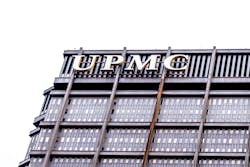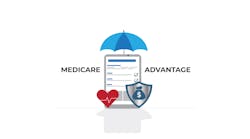One of the key social determinants of health, employment, took on new urgency when the pandemic caused widespread job losses. In July 2020, the University of Pittsburgh Medical Center (UPMC) launched a Pathways to Work initiative to provide training, education, and direct support to increase access to employment for UPMC Health Plan members.
Part of that effort is UPMC’s “Freedom House 2.0,” a project designed to train and employ first responders from economically disadvantaged communities, many of which have been significantly impacted by COVID-19.
Run through the UPMC Center for High Value Care, the program provides training and support to individuals facing health and economic disparities. The training focuses on traditional emergency medical services (EMS) and on equipping first responders to help address critical, non-emergency psychosocial needs— such as poorly managed chronic medical and behavioral health conditions and a lack of access to resources to address them— that comprise a significant portion of 911 calls.
The project echoes Pittsburgh’s original “Freedom House” initiative from 1968-1975, which provided EMS training to economically disadvantaged individuals in the city’s Hill District.
Freedom House 2.0 participants receive mentorship and financial support, as well as state-approved EMT certification and community paramedic and community healthcare worker training. Successful graduates are guaranteed an interview with UPMC and other job placement support.
Freedom House 2.0 is funded from a $235,000 grant from Partner4Work, the public workforce investment board for Allegheny County, and builds upon UPMC’s Pathways to Work program and ongoing collaboration with the board on strategies to offer low-income individuals meaningful job training and support.
The project was featured during a June 27 webinar hosted by the Institute for Medicaid Innovation, which has created a compendium highlighting many of the ways Medicaid managed care organizations reached out to members and partners to identify and respond to community needs.
After completing the Freedom House training, Tashina Hosey was offered a position as a community health worker at UPMC. “We assist the homeless with finding housing. We assist people who may not have enough food for the month to get food for the month. People who may not be able to afford their utilities, we find resources to help them get their get their utilities paid,” she said. “Outside of what we do for other people, what Freedom House has done for me is put me in a position to not only better my life but also the lives of my children. I'm 31, and I was able to purchase my first home. Some people twice my age have never been in a position to purchase a home, so it has been life-changing.”
“When we talk about the social determinants of health, we also need to recognize that there are the social determinants of employment, the social determinants of education,” said Dan Swayze, Dr.P.H., M.B.A., vice president of community services for UPMC Health Plan.
“As part of our Pathways to Work program, we are successfully employing about 200 of our Medicaid members per month in the ranks of UPMC,” Swayze added. “To do that, we had to create unique partnerships. We have the good fortune of working with an academic institute that provided the training for us at the University of Pittsburgh in the Center for Emergency Medicine. We've got great partners in our workforce investment board here in Allegheny County. By combining all of these unique partnerships, we are really taking an innovative approach in treating the classroom as a food pantry/childcare office/transportation hub to help address all of those different barriers, and we were able to hire somebody and promote somebody like Tashina through the entire process, to our benefit.”
“When we look at the waning days of what we hope is the biological threat from the pandemic, we realize that we have a long way to go in terms of our socioeconomic recovery,” Swayze explained. “As low as unemployment is for most of us, it's still twice as high for Black women as it is for the rest of the country. As we began to think differently about this, the health plan was blessed to have great partners that were willing to step into this space. Even though it's a unique role for us, I can tell you it's one of the roles that I'm most proud of us being able to do as a health plan. It really is an opportunity for us to show an investment in our community. It's an opportunity for us to recruit superstars, like Tashina to join our workforce. It's just been a fantastic collaborative and one that we're just so grateful that we've made the initial investments in.”
Moderating the IMI webinar was Haleta Belai, M.B.A., senior director of social determinants of health Innovation at Centene. She noted that the initiatives highlighted in IMI’s compendium shared a striking commonality in that they were successful because they were implemented at the community level. “Health plans applied an equity lens by focusing resources where the impact of the pandemic was most severe,” she said. Health plans addressed pre-existing inequities in new and intentional ways. They advanced equity through developing strategies that ensured inclusiveness and engaged community partners to design and deliver services in culturally congruent ways. “Overall, Medicaid MCOs sharpened their understanding of inequities by analyzing disparities that were exacerbated during the pandemic.”
The IMI report, “Medicaid Managed Care’s Pandemic Pivot: Addressing Social Determinants of Health to Improve Health Equity” includes initiatives and programs from 14 states across the U.S. from a 2021 national request for information to identify emerging best practices and innovative initiatives. The initiatives represent submissions from a wide range of Medicaid health plans: national and local, large and small, corporate and nonprofit. A group of Medicaid experts were invited to serve as peer reviewers as part of a blinded review process to score and select eight initiatives to explore the drivers of innovation by Medicaid MCOs.


